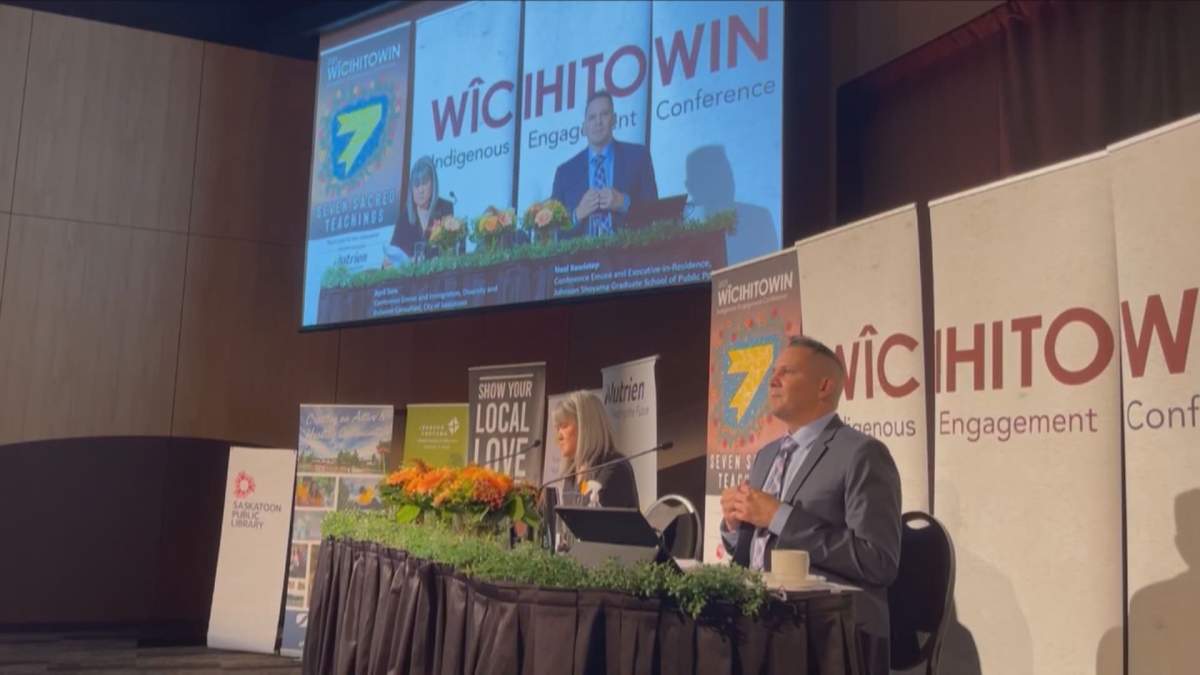Working towards Indigenous engagement and inclusion is the primary focus for an annual conference. The Wicihitowin Indigenous Engagement Conference is in its seventh year of running and has gained a large presence.

However, the COVID-19 pandemic halted the in-person experience. But that didn’t stop organizers from hosting the event virtually for the second year in a row.
“It has always been an in-person event. Last year, we were able to accommodate more people because there wasn’t a seating capacity,” said Neal Kewistep, co-founder of Wicihitowin.
“We had 1,000 people last year and this year, we have grown significantly. We have people, not only from every province in Canada, but we have people from over 10 different countries. It’s been pretty phenomenal.”
This year’s turnout is well over 2,500 attendees. Having the conference virtually has made it accessible for others to get involved on learning more about Indigenous engagement and inclusion.
At this annual conference, community members, organizations and businesses and different levels of government listen in on the various guest speakers.

Get daily National news
“We’ve always done our best to try and accommodate and provide a stage for people on a platform to get the message across,” said Kewistep. “We don’t always try to celebrate residential school history but we try to honour the history.”
- Canadian immigration officers investigating hundreds identified by extortion task force
- Carney unveils ‘Buy Canadian’ defence plan, says security can’t be a ‘hostage’
- Inflation cooled to 2.3% in January but food prices up again: StatCan
- Rhode Island shooting brought to ‘swift end’ by ‘good Samaritan’: police
This year’s lineup consists of Indigenous leaders, residential school survivors and Knowledge Keepers as they explore the Seven Sacred Teachings to help promote and foster healing.
Listening in on the conference has been refreshing for one residential school survivor and guest speaker.
“As a survivor, I’m happy to be part of this conference,” said Rick Daniels, from the Mistawasis Nehiyawak Nation. “We talked about our time in residential schools and what we went through. I shared the healing part of my time after residential school.”
Daniels attended the St. Michael’s residential school located in Duck Lake, Sask., from 1953 to 1959. He said when he heard of the unmarked grave discoveries at a couple residential schools this past summer, he wasn’t surprised. But as the conversations surrounding residential schools rehashed, so did the memories.
“It brought back a lot of memories of trauma,” said Daniels. “We all went through different traumas.”
Fresh with dark memories of different kind of abuses, Daniels left St. Michael’s residential school at the age of 12. He did not know what healing was until later in his adult life.
“My healing journey started with the Seven Sacred Teachings played the major part in that,” said Daniels.
The Wicihitowin Indigenous Engagement Conference started on Oct. 5-7 with guest speakers including Cowessess Chief Cadmus Delorme, National Advocate for Indigenous Children Cindy Blackstock, and renowned and best-selling author Richard Van Camp, to name a few.
The Indian Residential Schools Crisis Line (1-866-925-4419) is available 24 hours a day for anyone experiencing pain or distress as a result of their residential school experience.









Comments
Comments closed.
Due to the sensitive and/or legal subject matter of some of the content on globalnews.ca, we reserve the ability to disable comments from time to time.
Please see our Commenting Policy for more.